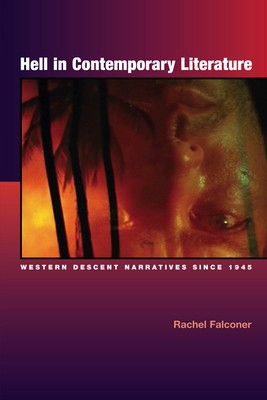
- We will send in 10–14 business days.
- Author: Rachel Falconer
- Publisher: Edinburgh University Press
- ISBN-10: 0748617639
- ISBN-13: 9780748617630
- Format: 16.3 x 24.2 x 2.6 cm, hardcover
- Language: English
- SAVE -10% with code: EXTRA
Reviews
Description
What does it mean when people use the word 'Hell' to convey the horror of an actual, personal or historical experience?Now available in paperback, this book explores the idea that modern, Western secular cultures have retained a belief in the concept of Hell as an event or experience of endless or unjust suffering. In the contemporary period, the descent to Hell has come to represent the means of recovering - or discovering - selfhood. In exploring these ideas, this book discusses descent journeys in Holocaust testimony and fiction, memoirs of mental illness, and feminist, postmodern and postcolonial narratives written after 1945. A wide range of texts are discussed, including writing by Primo Levi, W.G. Sebald, Anne Michaels, Alasdair Gray, and Salman Rushdie, and films such as Coppola's Apocalypse Now and the Matrix trilogy. Drawing on theoretical writing by Bakhtin, Levinas, Derrida, Judith Butler, David Harvey and Paul Ricoeur, the book addresses such broader theoretical
issues as: narration and
EXTRA 10 % discount with code: EXTRA
The promotion ends in 20d.03:26:48
The discount code is valid when purchasing from 10 €. Discounts do not stack.
- Author: Rachel Falconer
- Publisher: Edinburgh University Press
- ISBN-10: 0748617639
- ISBN-13: 9780748617630
- Format: 16.3 x 24.2 x 2.6 cm, hardcover
- Language: English English
What does it mean when people use the word 'Hell' to convey the horror of an actual, personal or historical experience?Now available in paperback, this book explores the idea that modern, Western secular cultures have retained a belief in the concept of Hell as an event or experience of endless or unjust suffering. In the contemporary period, the descent to Hell has come to represent the means of recovering - or discovering - selfhood. In exploring these ideas, this book discusses descent journeys in Holocaust testimony and fiction, memoirs of mental illness, and feminist, postmodern and postcolonial narratives written after 1945. A wide range of texts are discussed, including writing by Primo Levi, W.G. Sebald, Anne Michaels, Alasdair Gray, and Salman Rushdie, and films such as Coppola's Apocalypse Now and the Matrix trilogy. Drawing on theoretical writing by Bakhtin, Levinas, Derrida, Judith Butler, David Harvey and Paul Ricoeur, the book addresses such broader theoretical
issues as: narration and


Reviews